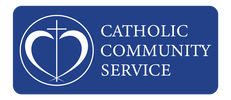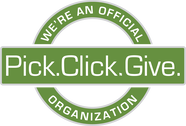July 2019
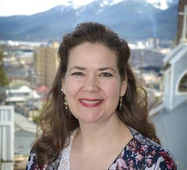 Erin Walker-Tolles
Erin Walker-Tolles
Dear friends and neighbors,
We at Catholic Community Service (CCS) are deeply concerned about how Governor Dunleavy’s recent line-item vetoes will affect individuals and families in Southeast Alaska. As you may know, CCS serves the entire region with social services: 11 senior centers providing hot nutritious meals, meals on wheels, and rides to seniors and elders age 60 and over, along with a wide range of supports for seniors and elders across the region. We also provide Hospice, Home Health, Adult Day in Juneau, as well as operate the SAFE Child Advocacy Center for Southeast. We were pleased when the Legislature put together – through hard work and bipartisan compromise – a budget that would maintain existing services and resources for most of those we serve.
Unfortunately, the budget looks very different now that the governor has exercised his prerogative to veto. We are especially concerned about low-income seniors and elders who rely on the Senior Benefits program, which was completed eliminated. We are worried for low-income children and disabled seniors and elders who rely on Medicaid, as funding was significantly reduced. And cuts to capital and education funding will leave local communities scrambling to bridge that funding gap.
Read this article in the Anchorage Daily News that describes the line-item vetoes.
My perspective on the budget cuts comes from visits to communities in Southeast, where I have had the the privilege of talking with seniors and elders across the region. Every conversation I’ve had with those we serve about potential Senior Benefits and Adult Public Aid cuts has been the same—deep worry and concern that losing this income will mean great hardship, even disaster for them. One senior said “I’m going to have to stop buying meat,” while another talked about having to choose between buying food and paying for medication. And one lady in Ketchikan pulled me aside to ask if it could really be cut, because if she loses that income “I’m going to be homeless.”
Because our SAFE Child Advocacy Center helps collect forensic and medical information in support of prosecution of alleged child abusers, I am concerned that cuts to the court system (public defenders, therapeutic courts) may mean even fewer prosecutions of child abusers, leaving them on the street to do more harm.
Medicaid cuts will impact not only individual Alaskans, but Catholic Community Service relies on Medicaid Waiver to fund a portion of senior center costs (eligible seniors have plans of care that include meals and rides in support of their health and independent living). And of course, our health care services rely on Medicaid income too. These cuts leave CCS with fewer dollars to help those in need.
There are other vetoed items that concern me on behalf of vulnerable Alaskans as well – early learning programs, accessibility improvements, funds for transportation, and more. Please help us prevent these devastating cuts from going into effect.
Many people have asked how they can help. The best thing you can do right now is to write to members of the legislature and let them know that unless they work together to override the vetoes, grave damage will be done to the citizens of Alaska. Here are their e-mail addresses. The special session where legislators will vote to override the vetoes starts Monday. They need to hear from you! Please write to our legislators TODAY.
Warmly,
We at Catholic Community Service (CCS) are deeply concerned about how Governor Dunleavy’s recent line-item vetoes will affect individuals and families in Southeast Alaska. As you may know, CCS serves the entire region with social services: 11 senior centers providing hot nutritious meals, meals on wheels, and rides to seniors and elders age 60 and over, along with a wide range of supports for seniors and elders across the region. We also provide Hospice, Home Health, Adult Day in Juneau, as well as operate the SAFE Child Advocacy Center for Southeast. We were pleased when the Legislature put together – through hard work and bipartisan compromise – a budget that would maintain existing services and resources for most of those we serve.
Unfortunately, the budget looks very different now that the governor has exercised his prerogative to veto. We are especially concerned about low-income seniors and elders who rely on the Senior Benefits program, which was completed eliminated. We are worried for low-income children and disabled seniors and elders who rely on Medicaid, as funding was significantly reduced. And cuts to capital and education funding will leave local communities scrambling to bridge that funding gap.
Read this article in the Anchorage Daily News that describes the line-item vetoes.
My perspective on the budget cuts comes from visits to communities in Southeast, where I have had the the privilege of talking with seniors and elders across the region. Every conversation I’ve had with those we serve about potential Senior Benefits and Adult Public Aid cuts has been the same—deep worry and concern that losing this income will mean great hardship, even disaster for them. One senior said “I’m going to have to stop buying meat,” while another talked about having to choose between buying food and paying for medication. And one lady in Ketchikan pulled me aside to ask if it could really be cut, because if she loses that income “I’m going to be homeless.”
Because our SAFE Child Advocacy Center helps collect forensic and medical information in support of prosecution of alleged child abusers, I am concerned that cuts to the court system (public defenders, therapeutic courts) may mean even fewer prosecutions of child abusers, leaving them on the street to do more harm.
Medicaid cuts will impact not only individual Alaskans, but Catholic Community Service relies on Medicaid Waiver to fund a portion of senior center costs (eligible seniors have plans of care that include meals and rides in support of their health and independent living). And of course, our health care services rely on Medicaid income too. These cuts leave CCS with fewer dollars to help those in need.
There are other vetoed items that concern me on behalf of vulnerable Alaskans as well – early learning programs, accessibility improvements, funds for transportation, and more. Please help us prevent these devastating cuts from going into effect.
Many people have asked how they can help. The best thing you can do right now is to write to members of the legislature and let them know that unless they work together to override the vetoes, grave damage will be done to the citizens of Alaska. Here are their e-mail addresses. The special session where legislators will vote to override the vetoes starts Monday. They need to hear from you! Please write to our legislators TODAY.
Warmly,
Erin Walker-Tolles
Executive Director, Catholic Community Service, Inc
Executive Director, Catholic Community Service, Inc
During the month of June 2019, we moved many of our offices from the St. Ann’s building on Sixth Street in downtown Juneau to the Bridge Adult Day Center on Glacier Highway. This is a cost-savings measure that will allow us to continue to serve our clients without cutting services or programs, whatever happens with the state budget. More employees are now occupying a smaller space; we think this is a great way to cut down on overhead without cutting services.
Our Finance, Human Resources, and Care-A-Van offices were already located at the Bridge. Now they have been joined by the remaining executive staff, including our executive director, as well as the Hospice and Home Health staff. Remaining at our Sixth Street building is the Southeast Senior Services staff, including regional coordinators, case management, caregiver support staff, and our Senior & Caregiver Resource Center.
Our staff is excited about the new digs, especially because office consolidation and cost-savings mean we can continue to serve Southeast Alaska’s vulnerable populations as we always have, with dignity, care, and compassion. Our new address is 1803 Glacier Highway, Juneau, Alaska 99801.
Our Finance, Human Resources, and Care-A-Van offices were already located at the Bridge. Now they have been joined by the remaining executive staff, including our executive director, as well as the Hospice and Home Health staff. Remaining at our Sixth Street building is the Southeast Senior Services staff, including regional coordinators, case management, caregiver support staff, and our Senior & Caregiver Resource Center.
Our staff is excited about the new digs, especially because office consolidation and cost-savings mean we can continue to serve Southeast Alaska’s vulnerable populations as we always have, with dignity, care, and compassion. Our new address is 1803 Glacier Highway, Juneau, Alaska 99801.
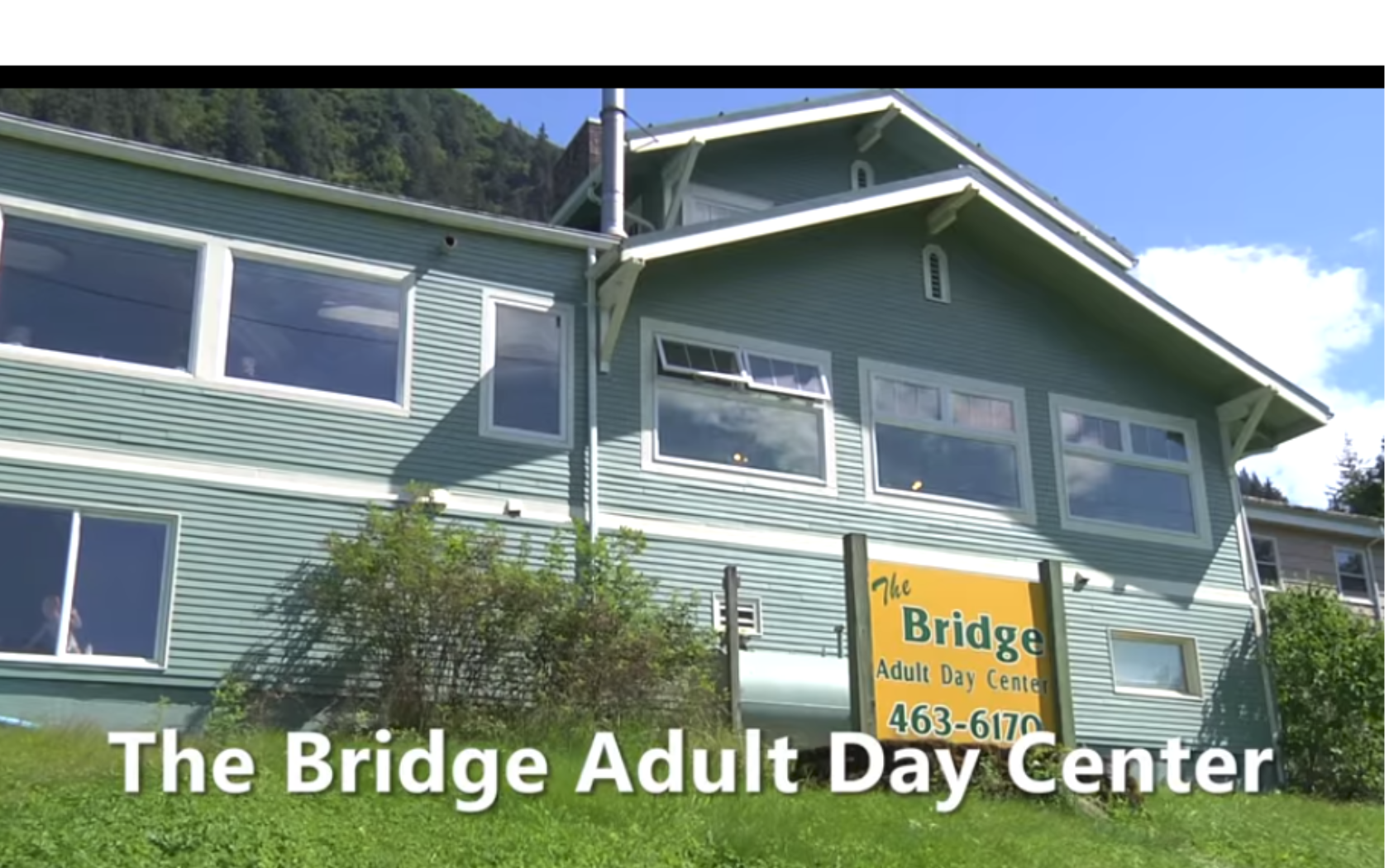
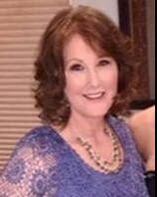
By Tamra Catt, CCS Human Resources Director
[Note: This is the first in a series of stories about how CCS services can affect lives. If you have a personal story about how our services have affected your family, please write to us at [email protected]. We would love to hear from you, and possibly share your story in an upcoming issue of this newsletter.]
A little over three months ago I had to make a difficult journey back home to be with my family due to my father’s illness. We all met at his oncologist’s office to hear the prognosis.. My father had been battling cancer for about five years. The doctor looked at my father and said “Mike, your cancer has spread throughout your body; it is a very aggressive cancer and you have about three to six months to live.” He then said, “I would like to refer you to the Hospice program.”
I work with Catholic Community Service, so I was very familiar with the philosophy of Hospice, but I didn’t realize how soon I would need this service in my personal life.
So, our Hospice journey started. Shortly after the referral from my dad’s oncologist, a social worker visited us to explain how the program worked and what to expect. The next day, a Registered Nurse Case Manager came in to assess my dad. She was wonderful. Her compassion and empathy were obvious to all of us. She listened to what we thought would be helpful and what we didn’t want. It was funny how one of the hardest decisions during this process was “do we want a hospital bed?” My dad and mom said “no” right away. I guess having a hospital bed in the house made it seem so much more real. Our nurse tried to encourage us and gave us reasons why it would be beneficial, but we dug in our heels and said, “no, we are sure we can handle all his needs without a hospital bed.”
Before the nurse left our home, she taught my sister and me everything we needed to know about the medications my dad would be taking, the dosages and how often we could use them to help relieve his discomfort. The nurse didn’t leave until she knew we understood the directions fully.
My dad’s condition turned bad very quickly and my brother, sister and myself found that we were struggling with moving my dad to help make him comfortable in his bed. At one point, my brother was pulling, my sister was pushing, and I was tugging, and we finally collapsed in laughter. I said, “Dad, I guess you didn’t anticipate having the three stooges caring for you like this!” His smile melted my heart and then I realized, I wouldn’t want my dad anywhere else. My brother and sister and I were given a sweet opportunity to share in the care of my sweet father in his final days. Some of the days were emotionally draining but my dad had his wife and his children (who loved him beyond words) giving every single ounce of themselves before he made his journey to his eternal reward. The hospital bed arrived the next day!
The Hospice program was there for us to give as much, or as little support as we asked for. They wanted to ensure we had our emotional, spiritual and physical needs met while we were going through this very difficult time together. My dad passed peacefully right next to us on January 21, 2019. I can honestly say he knew and felt the love of his family and friends because he was allowed to be in the comfort of his own home, in familiar surroundings and close to everyone and everything that gave him joy. There are a thousand memories that I hold on to during those last six days but the one that means to the most to me is when I would say “Daddy, I love you so much” and he would say, “I know you do.”
I am so proud and happy that I work for an organization that provides such comfort to patients and families in their time of need. Now that I have experienced Hospice services in my own family, I am even more convinced of its value.
[Note: This is the first in a series of stories about how CCS services can affect lives. If you have a personal story about how our services have affected your family, please write to us at [email protected]. We would love to hear from you, and possibly share your story in an upcoming issue of this newsletter.]
A little over three months ago I had to make a difficult journey back home to be with my family due to my father’s illness. We all met at his oncologist’s office to hear the prognosis.. My father had been battling cancer for about five years. The doctor looked at my father and said “Mike, your cancer has spread throughout your body; it is a very aggressive cancer and you have about three to six months to live.” He then said, “I would like to refer you to the Hospice program.”
I work with Catholic Community Service, so I was very familiar with the philosophy of Hospice, but I didn’t realize how soon I would need this service in my personal life.
So, our Hospice journey started. Shortly after the referral from my dad’s oncologist, a social worker visited us to explain how the program worked and what to expect. The next day, a Registered Nurse Case Manager came in to assess my dad. She was wonderful. Her compassion and empathy were obvious to all of us. She listened to what we thought would be helpful and what we didn’t want. It was funny how one of the hardest decisions during this process was “do we want a hospital bed?” My dad and mom said “no” right away. I guess having a hospital bed in the house made it seem so much more real. Our nurse tried to encourage us and gave us reasons why it would be beneficial, but we dug in our heels and said, “no, we are sure we can handle all his needs without a hospital bed.”
Before the nurse left our home, she taught my sister and me everything we needed to know about the medications my dad would be taking, the dosages and how often we could use them to help relieve his discomfort. The nurse didn’t leave until she knew we understood the directions fully.
My dad’s condition turned bad very quickly and my brother, sister and myself found that we were struggling with moving my dad to help make him comfortable in his bed. At one point, my brother was pulling, my sister was pushing, and I was tugging, and we finally collapsed in laughter. I said, “Dad, I guess you didn’t anticipate having the three stooges caring for you like this!” His smile melted my heart and then I realized, I wouldn’t want my dad anywhere else. My brother and sister and I were given a sweet opportunity to share in the care of my sweet father in his final days. Some of the days were emotionally draining but my dad had his wife and his children (who loved him beyond words) giving every single ounce of themselves before he made his journey to his eternal reward. The hospital bed arrived the next day!
The Hospice program was there for us to give as much, or as little support as we asked for. They wanted to ensure we had our emotional, spiritual and physical needs met while we were going through this very difficult time together. My dad passed peacefully right next to us on January 21, 2019. I can honestly say he knew and felt the love of his family and friends because he was allowed to be in the comfort of his own home, in familiar surroundings and close to everyone and everything that gave him joy. There are a thousand memories that I hold on to during those last six days but the one that means to the most to me is when I would say “Daddy, I love you so much” and he would say, “I know you do.”
I am so proud and happy that I work for an organization that provides such comfort to patients and families in their time of need. Now that I have experienced Hospice services in my own family, I am even more convinced of its value.
This spring, CCS launched a fundraising campaign to support our services throughout Southeast Alaska. Our goal was to raise $20,000 by June 30. But it is not too late to join us! Every dollar we raise is used to promote the health and wellbeing of seniors, children and families in Southeast Alaska. CCS partners with municipalities, boroughs and tribes to provide many of the services that local senior citizens need to live full lives and maintain their independence for as long as possible. We provide the only home health services to homebound individuals in Juneau, with therapies and skilled nursing to help them heal from injury, illness and surgery. We also run the only hospice program for those at end-of-life and their families, including wraparound care and bereavement services. CCS is proud to serve Alaskans of any religion, race, color, sex, gender and sexual identity.
Now that we have seen the Governor’s list of vetoes, we know that the need is greater than ever. Please consider a monetary gift TODAY, to help us continue our work. You can mail a check, made out to Catholic Community Service, to 1803 Glacier Highway, Juneau, Alaska 99801. Or visit our web site at http://www.ccsjuneau.org to donate online.
Now that we have seen the Governor’s list of vetoes, we know that the need is greater than ever. Please consider a monetary gift TODAY, to help us continue our work. You can mail a check, made out to Catholic Community Service, to 1803 Glacier Highway, Juneau, Alaska 99801. Or visit our web site at http://www.ccsjuneau.org to donate online.
